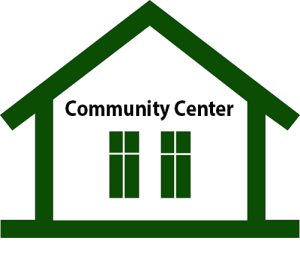 In the wake of a sometimes chaotic four-hour Special Town Meeting (STM) about the community center, the Select Board will aim to get a better handle on voter sentiment and make future town meetings run more efficiently.
In the wake of a sometimes chaotic four-hour Special Town Meeting (STM) about the community center, the Select Board will aim to get a better handle on voter sentiment and make future town meetings run more efficiently.
The November 30 STM started about half an hour late due to the long line of residents waiting to check in. There were also delays as standing votes were counted, and several residents also wanted to submit amendments to the motion to approve spending $325,000 on architects and other consultants to create design options for a community center. The measure that ultimately won approval called for a range of designs and budgets, “including options not to exceed 75% and 50% of the current project estimated cost of $25 million, for the Hartwell Complex, supplemented or not with existing available town space.”
Going forward, the Select Board on December 12 advocated:
- Having future Special Town Meetings during the day on a Saturday rather than on a weekday night
- Expediting the check-in process
- Having shorter presentations
- Always having town counsel present
Another problem on November 30 was confusion among some attendees about what exactly they would be voting on. Initially, the plan was to develop prices and designs for two options suggested by Mary Ann Thompson Architects in 2018, but many residents got cold feet in the weeks before the STM when they learned that estimates for both were now about $25 million.
The board and Community Center Building Committee tried to emphasize before the STM that the $325,000 would be used to develop lower-cost options as well, but this wasn’t clear to many voters on November 30. Those worries about cost were underestimated by town officials.
“We were not sensing the temperature of the room,” Select Board member Jonathan Dwyer said. “It was fall when the temperature was really rising.”
To get a sense of public sentiment before voting, the town has tried in-person polls using sticky dots or notes, as well as online surveys, but each method has detractors who say they unfairly exclude some residents, such as those who can’t attend a meeting in person or seniors who aren’t comfortable with digital technology. But board member Jim Hutchinson advocated for email or web-based surveys or polls anyway.
“Isn’t it better to get the data and acknowledge its biases and limitations than not to look at it at all? We need more data on what people are thinking sooner in the process,” he said.
When the detailed community center choices come up for a “preferred option” STM vote a year from now, the first round of voting (assuming there are three or more choices) should be anonymous, as it was for the final school project vote in 2018, board member Jennifer Glass said, adding that “none of the above” could also be an option for voters.
Hutchinson also suggested trying out instant phone-based polling during a future non-voting meeting, though only to quickly and informally gauge opinion on a specific point of discussion. Allowing hundreds of people to express an opinion at the same time rather than waiting a turn to speak at the microphone would save time. “Think of it simply as a feedback mechanism for getting a sense or pulse rather than a legally binding voting process,” he said.
Another idea suggested by Town Administrator Tim Higgins was to have a “scribe” with a laptop assigned to type up proposed amendments to be displayed on large screens in real time for everyone to see. At the November 30 event, six different people asked to offer amendments; reading and voting on each would have taken hours, but Town Moderator Sarah Cannon Holden convinced them to get together and agree on wording for a single amendment.
Hutchinson noted that he got positive feedback as well as complaints about how the STM was conducted. People told him they realized that debate on the floor can change minds and that democracy is inherently messy. “It was democracy in action. It might not have been the cleanest thing but it got there,” he said.
“Hutchinson noted that he got positive feedback as well as complaints about how the ATM was conducted. People told him they realized that debate on the floor can change minds and that democracy is inherently messy.”
This is exactly why in-person Town Meetings are critical. We need to hear each other. We may hear points we had not considered. Debate must not be cut short, but encouraged.
Thanks to the Selects for understanding and embracing the messy business of democracy.
Sara Mattes